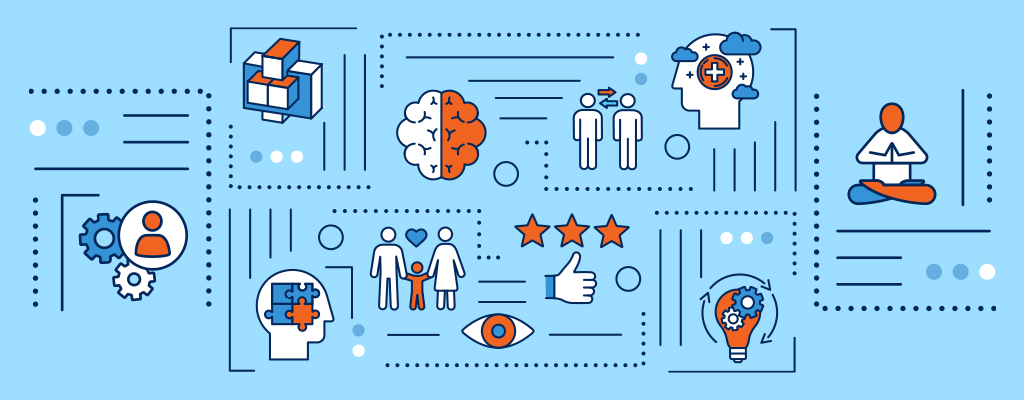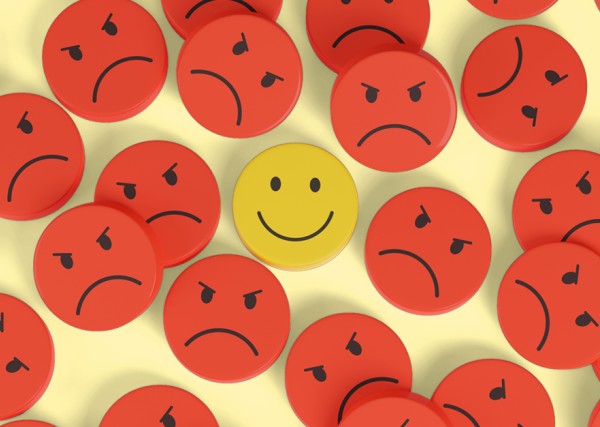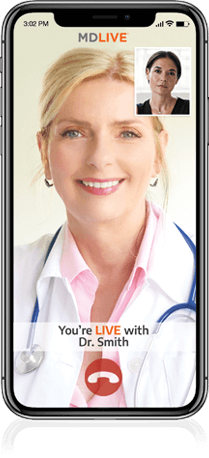
5 things you may not know about talk therapy.
May is Mental Health Awareness Month, and it’s a good time to reflect on how you’re feeling. If times are tough or you need help working through an issue, talk therapy is one of the best things you can do for yourself. Understandably, many people don’t know how, or if, therapy will help. To clear up confusion, here are five things you may not know about talk therapy.
1. Therapy is proven to be effective.
Studies consistently prove that therapy is effective in producing long-term health improvements. In fact, 78% of patients who seek help with an MDLIVE mental health professional report feeling better after just three visits.1
- 1“Therapy is effective, and here’s why.” American Psychological Association, https://www.apa.org/monitor/2011/10/psychotherapy
2. Therapy helps with day-to-day challenges, too.
You don’t need to have severe mental health issues or suffer from a crisis to benefit from therapy. Everyone can feel better from talking to an empathetic professional, whether it’s to overcome trauma or just make better life decisions.
A therapist can help you work through daily challenges, make more productive choices, learn valuable life skills, and achieve dreams and goals. Because therapy can increase problem-solving skills and confidence, it can also help you feel stronger when facing challenges.
3. Therapy improves overall health and wellbeing.
Being proactive about your mental health is essential for your long-term physical health, too. The American Heart Association recently noted that people who report positive mental health were more likely to have lower blood pressure, better blood sugar levels, and fewer physical symptoms of stress, including migraines, digestive troubles, and insomnia.2
- 2“Psychological Health, Well-Being, and the Mind-Heart-Body Connection: A Scientific Statement From the American Heart Association.” Circulation, https://www.ahajournals.org/doi/10.1161/CIR.0000000000000947
4. More people use therapy than you may think.
As mental health symptoms escalated around COVID-19, so have the number of people reaching out for help. In 2019, more than 20 million people reported seeking out mental health services. Since the pandemic, that number has risen drastically, with 74% of psychologists seeing more patients compared to before COVID-19. More people recognize the value of talk therapy as a proactive way to feel better and stay healthy.3 4
5. Virtual therapy is becoming much more common.
Making an appointment for therapy can be a difficult first step for many people. Often, it can take weeks to get an appointment, and it may be hard to find the right therapist. Virtual therapy allows people to find the right care faster, from the privacy and comfort of home. And because the technology is so easy to use, virtual therapy is becoming the new normal.5
- 5“A growing wave of online therapy.” American Psychological Association, https://www.apa.org/monitor/2017/02/online-therapy
Posted date: July 17, 2021




